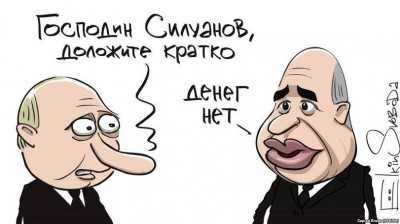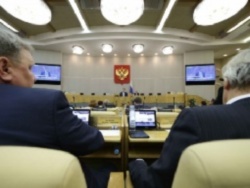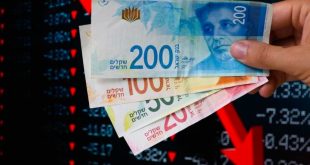
Whoever took the return of the discovered resources in Russia, it is surprising the hasty public statements. Money likes silence.
This Wednesday it became known that the FSB found about €300 mlna Swiss Bank accounts of offshore companies owned by the father of the arrested, the interior Ministry Colonel Dmitry Zakharchenko.
The origin of this money to date is not known. It is also unclear, does someone has (or is going to try to arrest and return these funds in Russia. Obviously, there are several potential candidates for this role:
<ol>
</ol>
The procedure of search, seizure and repossession of assets abroad varies somewhat depending on whether we are talking about criminal sanctions or civil requirement.
If the basis of the requirement about seizure of assets lies with the criminal case, a key element in the procedure is to request legal assistance by law enforcement agencies via official channels. It is very important that the request for legal assistance should contain sufficient information about the nature of the charges and links the accused to the assets to be frozen.
Switzerland and Russia are parties to the European Convention on mutual legal assistance in criminal matters of 1959, regulating the interaction of States in such cases. At the request of the Russian side on legal aid in a criminal case, Zakharchenko seizure of accounts may be imposed by the Swiss Prosecutor’s office without the need for separate treatment in the local court, although in the future the court will make the decision on the final withdrawal of the asset.
Switzerland is not the first time will face the charges in the criminal origin of the money deposited in local banks, and the procedures for the arrest and return of assets is quite well fulfilled. Most revealing in this regard is the case of Nigerian dictator called Sani Abacha, who ruled the country in the 90s.
In 1999, the new government of Nigeria has sent a request to Switzerland for legal assistance and freezing of assets of the former dictator. Arrest of accounts has been achieved fairly quickly, but the repatriation of money back to Nigeria was delayed for several years.
Only in February 2005, the Swiss Federal Supreme court decided that Abacha and his family are a “criminal organization”, which allowed to apply article of the criminal code of Switzerland, which suggests that the burden of proving the absence of connection of the assets of a criminal organization lies with the owner of the asset (a “presumption of guilt”).
That decision was the possibility of the application of this rule in the context of international legal assistance – Nigeria was thus liberated from having to prove the criminal origin of funds in the accounts in the course of a full criminal trial. This allowed the Swiss authorities to return Nigeria were in Swiss banks arrested funds. The process from submission of the request on legal assistance prior to receiving the money took about 8 years.
If the basis of the requirement about seizure of assets lies civil dispute, not a criminal case, the procedure will be different. In this case, the seizure of assets will be carried out not by the prosecution on the request for legal assistance from the Russian side, and the local court. A statement on the adoption of interim measures in the form of arrest of funds in the accounts should contact the interested party is a future creditor, for example the DIA as the bankruptcy Trustee of a bankrupt Bank or, in the case of rehabilitation, the Russian Bank, which has been sanitized.
The Swiss court must be presented with sufficient evidence that the applicant has a civil demand in Russia, which in the case of satisfaction and enforcement in Switzerland will give the right to foreclose on the disputed asset. In case of arrest by court decision, the arrest process was complicated by the fact that the nominal owners of accounts are not Russian individuals and foreign companies – a Swiss court will apply the doctrine of “piercing the corporate veil” to seize assets, and to do it will be more difficult than in a criminal case, which gives a lot of freedom.
However, whoever took the return of the discovered resources in Russia, surprised by the haste of public report was found in Swiss accounts. It is known that money likes silence, and the procedure of search and seizure of assets is no exception to the rule. The reasonable claimant would never declare it publicly of the found accounts to the moment of actual arrest. Otherwise, the debtor or his associates will be able to forestall and withdraw funds in another jurisdiction where the arrest may be more difficult to obtain or assign to a third party. It remains a mystery what the purpose of the investigation publicly stated found in Swiss accounts before getting them in respect of interim measures.
Although we can not exclude that during the search were found only statements many years ago (hence the references to long-defunct Dresdner Bank). In reality, all the money found accounts could have long ago dispersed and transferred to other banks and jurisdictions through a chain of sham transactions and shell companies. In this case, to reach the current location of the money and their owners will be much harder and require much more time and effort than it took to break the door by forces of rescuers during the recent searches in full of cash in the apartment.








